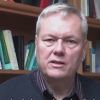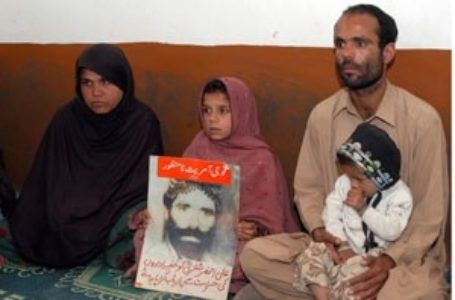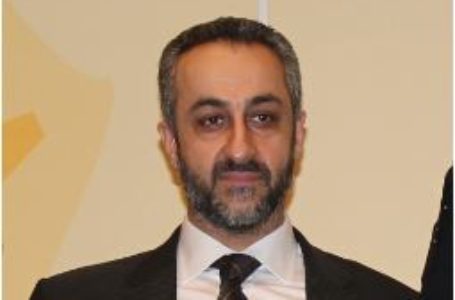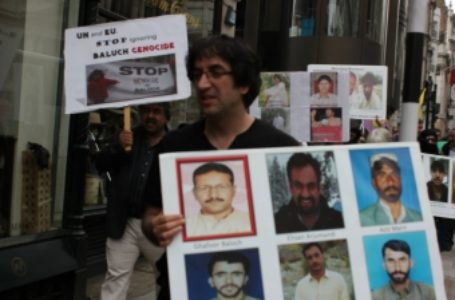Indian State Should Focus on Unconventional Methods: Jamal Nasir Baloch
Baloch should decide what expression they want to give to their struggle on an international level

Jan Fermon is a Belgian lawyer and Deputy President of the International Association of Democratic Lawyers. Interview by Faiz Mohammed Baluch for Balochwarna News and Humgaam Magazine.
FM Baluch: What can your association and European lawyers do to help the struggle of oppressed nations?
Jan Fermon: I think the basic problem is that when somebody asks me the question that you asked me. What can we do or what can lawyers do? I am always a little bit worry that people might overestimate the role of law and the role of lawyers because what lawyers can do is I think – support the movement of social liberation, national liberation or emancipation. They can support when movements are under attack and they can try to defend them in law. They also can try to bring to legal forums the struggle people wants to wage but law as such or lawyers as such – they do not solve anything. They cannot replace the struggle of people. It is an important thing to say and to remind because it is very often when we are confronted with people from countries where there is massive violation [of human rights]. They come and say take this to the International Criminal Court but this doesn’t make any sense if the movement is not at a very high level of development. And if there is a movement at very high level of development then I think I would return the question to you what can we do to support your struggle?
FMB: The liberation movement in Balochistan is on a very high level that is what’s making the state angry. Now they are killing lawyers who represent the missing persons; they are killing student, teacher who are campaigning for Baloch rights. They recently even raided universities and confiscated book of Gandhi, Nehru and other social struggles. There were books about Baloch literature, history and language they confiscated everything. The people are resisting back – there is arm struggle and political struggle. So what do you suggest?
JF: Then I think the question is what kind of expression do you want to give to that struggle on an international level? I will give you some examples of the kind of work we do. The revolutionary movement in the Philippines is since the beginning of the 90s in fact. They are negotiating with the government. When the negotiations started the government was hoping that the things will go El Salvador way and they will be able to very quickly kill the movement and get rid of it. But it did not turn out that way the revolutionary movement in the Philippines actually use the negotiations to develop the struggle. The problem is in the beginning the governments in these peace negotiations would sign anything. It will sign an agreement saying that they are going to solve social problem, land reform etc – they basically signed everything because they knew or at least they thought in three or four month when it is finished they can chuck the papers in the waste bin and then they do what they want. But there is core of binding agreement between the revolutionary movement and the government signed in this initial phase of peace negotiations.
We’d all assume it is a very interesting aspect. For example one of the agreements is a comprehensive agreement on respect for human rights and international humanitarian laws in which both parties sign that they will both prosecute human rights violators in their own camp which mean implicitly the Filipino government – the ruling government – recognised the situation of double power because if you say your partner in negotiation can prosecute and can judge it mean you recognise him as a state – you are in a situation of belligerency.
At some point the government completely shifted away from that approach and said all these previous agreements – forget about it – now we consider you as a terrorist movement so they try to criminalise it. And one of the things that happen was the Filipino revolutionary movement said that OK we want to emphasise in this negotiation and also on the international arena that we want to stick to these agreements and we want to stick to international law and the grounds for communication between us because we have very different ideas about Filipino society but we both adhere at least formally to international law so that it is a common ground on that we can meet.
Then we have set up, with the International Associations of Democratic Lawyers, a support group and an international legal advisory team to the National Democratic Front of the Philippines. So what happens is that lawyers from international lawyers actually give advice to the National Democratic Front of the Philippines on matters of international law. Recently the National Democratic Front was included in the UN lists of Child soldiers. There is a special list of armed movements using child soldiers. It is absolutely not true. There is a UNICEF report on the situation in the Philippines. It is the only report which is really an in-depth study in which they say there are no child soldiers on the side of the revolutionary movement.
Nevertheless for obvious political reasons under the pressure of the US they included them in the lists of the violators of the charter. So in reaction to that they (National Democratic Front) wrote an action programme and they set up bodies in the revolutionary movement for the protection of children. That plan is part of international law and we worked on that. So that’s the kind of support we can give.
Now you know that the peace negotiations are going on in Columbia. We have set up a similar type of team – an advisory team – to the Front in the peace negotiations in Columbia. Sometimes we have tried to take Palestinian cases to national jurisdiction under universal jurisdiction law in Europe. But the important point is that it’s always supportive and the needs are discussed and decided upon by the movements itself and then we can seek how to support, to facilitate and to give visibility through a legal forum to things the movement finds important.
FM: Well, the Baloch movement is a national liberation movement. They are struggling for independence. You may or may not know that Balochistan was an independent country and it has been occupied and divided so the Baloch are basically struggling to regain independence. The Baloch struggle is not getting exposure internationally or even Pakistani main stream media is ignoring it. That is why all the killings and the disappearances go unnoticed. So if the leader of Baloch freedom movement approach your organisation and ask you to send a fact finding mission to Balochistan – is that possible?
JF: Yes, that is the kind of things we have done in the past also in the Philippines when few year ago the death squads were very active. We have sent some fact finding missions there and there was also a project – because some of the lawyers we knew very well and were very much under threat – we said that we would send human shields to protect it. All these kinds of different forms are possible. We did again for the Philippines – I know the example well because I have been very much involved with an international tribunal here in Holland – tribunal of opinion with some of the people travelling from Italy. So I mean there are really different forms but it is basically up to the movement.
When I got these tribunals in the Philippines so at some point we discussed that there is a lot of human rights violations how we can expose it and people from the Philippines came up and said why we don’t do this tribunal. We can do it in Holland and we organise in the field because there is a lot of organisations in the Philippines they can collect all the evidence and witnesses.
FMB: Same is the case in Balochistan. There is no international exposure as I said no media coverage and no international attention?
JF: But it the movement is in a position to – because for example what was good in this tribunal on the Philippines actually they collected witness statements, they collected experts’ opinions and all kinds of aspects and then brought it together with the help of lawyers in this tribunal. But it took them I think more than a year work in the field which we can’t do I mean it really they who have to do it. It was people on the ground who collected witness statements on videos and convinced people to participate in this tribunal and collected funds to bring them to Holland and brought them to Manila to have video links etc
That is really a substantial work which needs to be done in the field. So may be for some movements this is a very good type of work and for some others it won’t work at all because they cannot do it or it is the not the type of work they want to do.
So I think there are many very different types of possibilities like inquiry commission, peoples tribunal, opinion tribunals, fact finding missions, actual court cases, trial observation and there is a whole list of things.
FMB: There has been inquiry commissions but they are all set up by the government and they are headed by military intelligence – the same military that is abducting people so obviously they won’t find anything. That is why Baloch keep on asking for international independent observes. So, if Baloch organisations working within the Baloch movement approach you and ask you to send a fact finding mission to Balochistan. Would you help?
JF: Yes, we could look into it. We could see but a fact finding mission sometime is possible and sometimes it is impossible. There are no go zones and possibility to endangering people by sending a fact finding mission. We have also had that. We tried to setup a fact finding mission and then we realised that when the fact finding mission goes then it leaves but the people stay on the ground exposed to the government authorities. I mean all these questions there is one factor who can judge what is possible and what needed. It is the movement itself because you [Baloch movement] know the situation in ground. Is it possible to send a fact finding mission in reasonable conditions? First of all can it work and secondly is minimum of security possible? Yes, then we can send a fact finding mission.
FMB: Well, they [fact finding mission] will have no security issues from the movement but nobody can guarantee the government. They I think will try to harm any foreign mission to defame the Baloch movement and stop them from exposing state crime there.
JF: I know and that is one of the problems. I think you should discuss within you movement and see what are the needs, what are kind of requirements and then once you said this is what we need or this we think is possible then you can start a discussion. As long as you don’t believe that the International Criminal Court is going to solve your problem … he laughs.
FMB: Thank you for your helpful insight
JF: You are welcome












